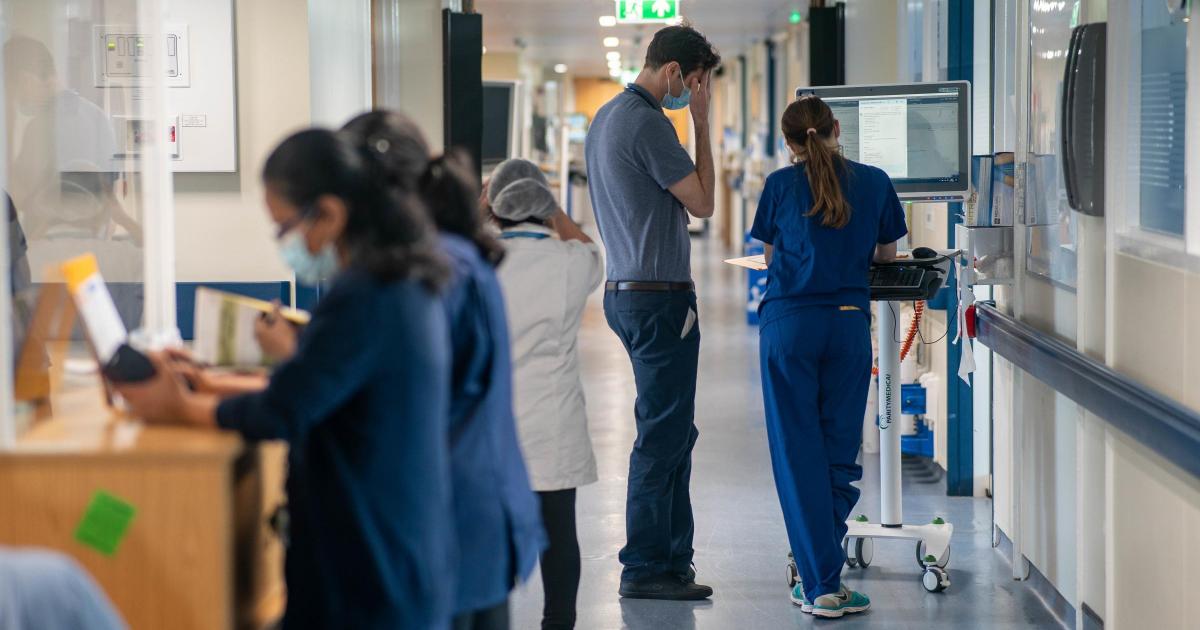In NHS Scotland, he said there was “confusion and inconsistency” around scopes of practice as well as misleading job titles when it came to medical associates, who undergo considerably less training than doctors.
Doctors typically undergo 7-10 ten years of education and supervised training before independent practice.
In contrast, PAs and AAs often train for approximately five years and are not trained in the same depth or breadth of healthcare.
In a blog post seen by The Herald ahead of publication, Dr Kennedy said: “We have consistently raised the issue of the inappropriate title of ‘associate’ given to these roles, with the Cabinet Secretary, and the blurring of lines and confusion caused.”
In July, an independent review in England, led by Professor Gillian Leng, recommended changing the job titles of AAs and PAs to avoid misleading patients and limiting their role in treating patients.
Dr Kennedy said: “We have been vindicated by the review’s unambiguous recommendation for name change – a change that must simply be adopted without delay.”
The UK Government has accepted the recommendations of the Leng Review, however, the Scottish Government has yet to formally respond.
Read More:
NHS ‘dying before our eyes’ as third of Scots go private
BMA confirms resident doctor strikes will go ahead
Although welcoming the review, BMA Scotland believes further action should be taken.
Dr Kennedy has called for a nationally set scope of practice in Scotland to be established, rather than leaving decisions to individual health boards. Without this, he warned, patients face a “postcode lottery” of care and clinicians lack clarity on what AAs and PAs can safely do.
Ministers have told the BMA the issue will next be discussed in September by a working group — a delay Kennedy described as “an abdication of leadership at a crucial moment.”
He added: “At the very least accepting and starting the process on changing the job title for these roles would begin the comprehensive work needed to protect patient safety.”
The warning comes amid wider pressures on NHS Scotland, with nearly half of doctors in Scotland (46%) telling the General Medical Council they had witnessed risks to patient safety at work – higher than the UK average of 40%.
The new workplace experiences report also showed 73% of Scotland’s doctors feel inadequate staffing is negatively affecting patient care.
Dr Kennedy said: “We owe it to each and every member of all the healthcare teams across Scotland to provide them with the kind of environment which facilitates exactly that. An environment that sets the parameters of safe practice clearly and supports us all to do our jobs effectively.
“Sadly, it has been apparent for some time that this environment simply doesn’t exist when it comes to AAs/PAS. We have been raising this issue repeatedly in Scotland.”
Other problems with AAs/PAs include the competition created for training opportunities for younger doctors, and the concern AAs/PAs will simply be used as a quick fix for what is described as failures in medical workforce planning.
Dr Scott McKinnon, co-deputy chair of the Scottish Resident Doctors Committee, said: “The implementation of the PAs/AAs workforce in Scotland has had an undoubtedly negative effect on resident doctors in Scotland. These roles were introduced with the promise that they would reduce workload, free up more time for training and doctoring, and improve the service for patients.
“Instead, what we have seen is resident doctors’ workload increasing – where inadequate supervision of PAs/AAs has meant resident doctors are being relied on to provide supervision, complete prescriptions, order and interpret tests, and sometimes even re-reviewing the same patients already seen by a PA/AA, needlessly duplicating work on top of the resident doctor’s own workload.
“Even worse, there have been several occasions where PAs/AAs have inappropriately been used to fill gaps on resident doctors’ rotas, where not only does this lead to an increased workload on the remaining medical team, but leads to a worse service for patients when that gap should have been filled by a resident doctor.”
He added: “Resident doctors are the future of the medical workforce in Scotland, and investing in their training is vital.”
Dr Kennedy urged ministers to act swiftly.
He concluded: “The Scottish Government must act now to ensure the risks associated with how these roles are used are properly mitigated. Without that, any use of these AA and PA roles by boards across Scotland will continue to pose a major threat to the safety of patients in Scotland’s NHS.”
The Scottish Government has said the Chief Medical Officer recently wrote to NHS Scotland Boards to “reinforce the need for effective local supervisory arrangements and clearly defined scopes of practice for these staff.”
A spokesperson added: “As part of efforts to ensure the safe and effective deployment, our national Medical Associate Professionals Programme Board (MAPs) is playing a key role in informing our response to the UK Government commissioned review on PAs and AAs and we will reach a decision on next steps once those discussions have concluded.”
